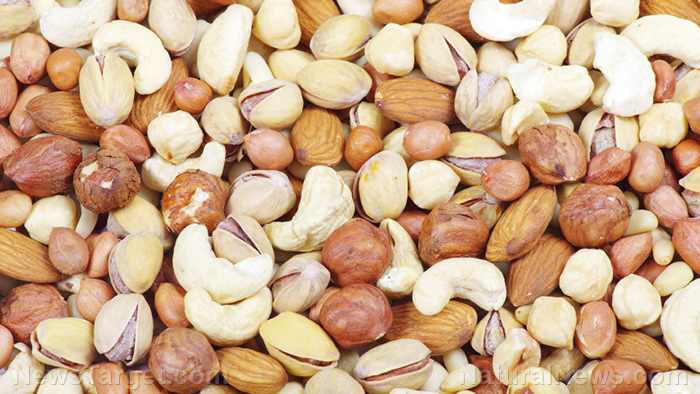Study: Taking creatine supplements helps boost brain function in vegetarians
11/15/2019 / By Melissa Smith

Creatine is a popular supplement for building muscles, but a new study reveals that it is also beneficial for the brain. Researchers at Stetson University in Florida found that vegetarians who take creatine supplements may enjoy better brain function. The team presented their study at the American Physiological Society’s (APS) annual meeting at Experimental Biology 2019.
Creatine, which helps build lean muscle, is stored in the muscles and brain. Aside from being produced by the body, it can also be found in red meat and seafood, as well as dairy products, in small amounts. Vegetarians and vegans, who do not consume meat and other animal products, tend to have lower creatine levels in the brain than people who eat meat. (Related: Creatine – What you want to know and much more.)
For the study, the researchers examined vegetarians alongside those who eat either up to 10 servings or 10 or more servings of beef, chicken, pork, or fish per week. Then, they randomly divided the participants into two groups. One group took a creatine supplement every day for four weeks, while the other did not. In addition, all participants took the ImPACT test, which is a widely used standardized measure of neurocognitive function, before and after the trial.
The results showed that the vegetarians scored higher on the ImPACT test than those who ate 10 or more servings of meat, poultry, or seafood each week. Meat eaters also did not show any significant improvement in brain function after supplementing with creatine because their levels of the chemical were already high.
“This is a pilot study for future research in the field of cognition, and specifically in vegetarians, as [there is] a shift to meat- and dairy-free alternatives in society,” said Kaitlyn Smith, first author of the study.
Creatine and its brain health benefits
Creatine not only boosts brain function, but also protects against neurological diseases. Creatine supplements increase the muscles’ stores of phosphocreatine, which is a form of stored energy in the cells that helps the body produce more of a high-energy molecule known as ATP.
Low levels of phosphocreatine in the brain contribute to several neurological diseases. But because creatine can increase these levels, it may help reduce or slow the progression of diseases. Animal studies have showed that taking creatine supplements may help with Huntington’s disease by helping to maintain daily function and reducing cell death by nearly 25 percent. Other animal studies have suggested that taking creatine supplements may help manage other diseases, such as Alzheimer’s disease, brain or spinal cord injuries, epilepsy, and ischemic stroke.
Creatine may also protect against amyotrophic lateral sclerosis (ALS), a disease that affects motor neurons. The chemical improved motor function (mobility), reduced muscle loss, and prolonged survival rate by 17 percent.
Taking creatine supplements may also help with Parkinson’s disease, which is characterized by a decline in dopamine levels. The large reduction in levels of this neurotransmitter causes brain cell death and several serious symptoms, such as loss of muscle function, speech problems, and tremors. In animal studies, creatine prevented the decrease in dopamine levels by as much as 90 percent. In human studies, taking creatine supplements together with weight training improved the strength and daily function of people with Parkinson’s to a greater extent compared with just training alone.
Is it safe to use?
In addition to the many health benefits of creatine, it is also one of the safest supplements available. It has been studied for more than 200 years, and many studies support that it is safe for long-term use. Clinical trials lasting up to five years have reported no adverse effects in healthy individuals.
Looking for other supplements to add to your regimen? Visit SupplementsReport.com to learn more.
Sources include:
Tagged Under: brain function, brain health, brain health boost, cognitive health, creatine, nervous system, nutrients, supplements, vegetarian diet, vegetarians
RECENT NEWS & ARTICLES
AgingSecrets.News is a fact-based public education website published by Aging Secrets News Features, LLC.
All content copyright © 2018 by Aging Secrets News Features, LLC.
Contact Us with Tips or Corrections
All trademarks, registered trademarks and servicemarks mentioned on this site are the property of their respective owners.




















